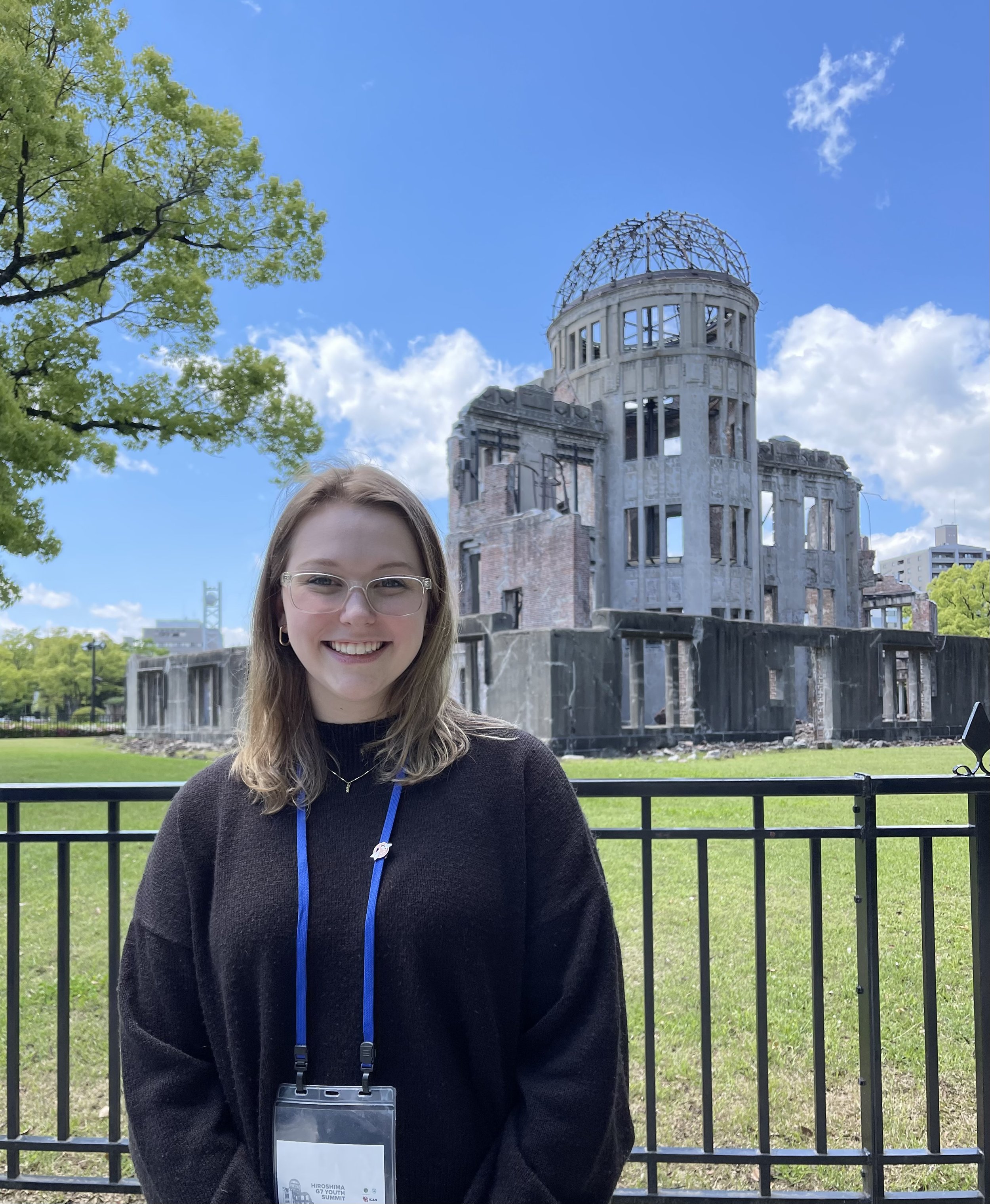What We Can Learn from Atomic Bomb Survivors
Global youth representatives at the G7 Youth Summit in Hiroshima, Japan, in April.
The G7 Summit will take place in Hiroshima, Japan, from May 19-21, 2023. The Summit is an international forum held annually for leaders of the G7 member states (France, the U.S., the UK, Germany, Japan, Italy, Canada, and the European Union). As the G7 Presidency rotates, Japan will be the host for the G7 Hiroshima Summit. There are significant implications that the G7 leaders are meeting in Hiroshima, a city that has recovered from catastrophic damage by an atomic bomb and continues to seek lasting world peace. Blue Planet Alliance Global Ambassador and Peace Boat US youth representative Molly Rosaaen attended the G7 Youth Summit, which took place at the end of April, organized in Hiroshima by the International Campaign to Abolish Nuclear Weapons (ICAN) and Peace Boat. We sat down with Molly to get her perspective on the conference, its impact, and what she learned from meeting the survivors of atomic bombs dropped on this host city more than 75 years ago.
What are your biggest takeaways from the G7 Youth Summit?
One of the biggest takeaways was learning about the consequences of nuclear weapons on a deeper level. The humanitarian and environmental consequences were devastating, but to hear stories from atomic-bomb survivors, also known as Hibakusha, and understand the reality of the aftermath from these bombs was truly shocking. The Hibakusha faced discrimination in Japan following the bombing on the basis of health because many survivors later died from cancers they developed from radiation exposure. They faced marriage discrimination because future children had a higher likelihood of developing an illness. The environmental impact of the bombs resulted in complete destruction of any wildlife in the area and contaminated the waterways with radiation. Every part of Japanese life after the bomb changed, and to learn about it firsthand was a once-in-a-lifetime opportunity.
What do you hope happens as a result of the G7 Summit taking place this week?
I want countries that took part in the development and bombing of Japan to acknowledge the harm they’ve done in the past and adhere to the Treaty on the Non-Proliferation of Nuclear Weapons (NPT), which all G7 states have signed. In an ideal world, I would like to see all the G7 countries also sign onto and ratify the Treaty on the Prohibition of Nuclear Weapons (TPNW). I spoke at a press conference at the Peace Memorial Museum in Hiroshima, where I urged U.S. representatives partaking in the G7 Summit to take advantage of the Summit being held in Japan. It is a great opportunity to learn from Hibakusha and understand the threat that nuclear weapons still hold in our world. As long as nuclear weapons exist, nobody is safe.
Why do you think the voices of youth for these historical, international events are important?
I think it is crucial to have young people involved in these events because we are inheriting the issues of today. We have the opportunity to tackle problems with a new perspective than previous generations have and use it to our strength. After attending the G7 Youth Summit, it was clear to me that mobilizing youth is important in the pushing for nuclear disarmament and to bring together different stakeholders to create sustainable solutions.
Molly at the G7 Youth Summit in Hiroshima, Japan.
Final thoughts
During the G7 Youth Summit, the Government of Japan was conversing about dumping wastewater from the wrecked Fukushima Nuclear Power Plant into the Pacific Ocean. It was unbelievable to me that this is an option because of how clearly this harms everyone involved. Dumping nuclear waste into our oceans harmed our planet in the past and will harm us today if Japan decides to do so. And there are also plans to dump radioactive wastewater from the decommissioned Indian Point nuclear power plant into the Hudson River, just 36 miles north of New York City. So this is a global issue.
My time learning from survivors about the atomic bombing in Hiroshima was incredibly impactful and I’m looking forward to continuing the fight toward nuclear abolition to make the world a safer, more peaceful place.


